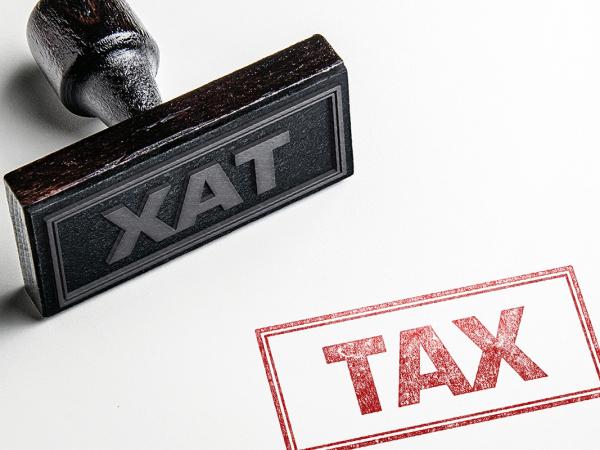Understanding taxes: empowerment and engagement
Taxes are an integral part of our lives; most of us pay tax, whether income tax, council tax or VAT on things we buy. Taxes also play an important role in shaping the infrastructure of our society. Yet, there is sometimes a lack of understanding and awareness of taxes and how the tax system works among the general public. This may be because of complexity, but it can also be a result of the way in which some tax systems operate. For example, the pay as you earn (PAYE) system through which you pay tax on your wages or pension is designed to minimise taxpayer involvement. Improving tax education can provide numerous benefits, from better understanding and awareness of the tax system to enhanced civic engagement. In this blog, we will explore the importance of tax education and the positive impacts of greater tax literacy.

The importance of tax education
Empowerment
One of the most immediate benefits of tax education is that it empowers individuals to manage their tax affairs. Understanding how taxes and the tax system work can help people understand and calculate their own tax liability. It can also give them more confidence to interact with HM Revenue & Customs (HMRC) directly, for example if they are eligible to claim a tax refund. Knowing the implications of different tax rates and bands can also guide individuals in making strategic choices about their careers and income sources. For example, this is key for those with student loan repayments to make, which they will generally pay through the tax system. For those taxpayers who are also claiming welfare benefits, understanding how these interact with the tax system is invaluable when thinking about how to manage their income.
Making the most of tax reliefs and allowances
A significant aspect of tax education is learning about the various tax reliefs and allowances available. Many taxpayers miss out on claiming tax relief or allowances, simply because they are unaware of them. If they cannot afford to pay for professional tax advice, there is no one to tell them what they can claim. This means they can end up paying more tax than they should. By understanding which expenses are deductible or what tax reliefs and allowances they might be eligible for, individuals can reduce their tax liability. This knowledge can lead to tax savings, thereby improving overall financial health.
Avoiding penalties
A lack of understanding of tax rules and deadlines can lead to costly mistakes, resulting in penalties and interest charges. Tax education helps individuals comply with filing requirements and deadlines, ensuring they avoid unnecessary fines. Good compliance not only saves the taxpayer money but also reduces stress.
Broader benefits of tax literacy
Enhanced civic engagement
Taxes are important to public services, funding everything from roads and schools to healthcare and defence. A general public that understands where tax payments go and what they fund is more able to engage in an informed manner in civic activities, such as voting and participating in public debates. This engagement is crucial for a healthy democracy, as it ensures that the voices of people are heard and considered in the policymaking process.
Informed decision-making
Tax policies often form a significant part of political platforms and public policy debates, as we have seen during the course of the recent UK general election campaign. Greater tax literacy enables individuals to critically evaluate these policies and understand their potential impacts. This informed perspective allows people to hold politicians to account. This is perhaps especially important in Wales and Scotland where some tax powers are devolved – taxpayers need to understand which government has what tax powers, and also how those different tax powers interact.
Reduction of the tax gap
The tax gap, which is the difference between taxes owed and taxes paid, can be partly attributed to a lack of understanding of tax laws. By increasing tax education, compliance rates can improve, thereby reducing the tax gap. This, in turn, can lead to more stable and predictable government revenues, enhancing the ability to plan and implement public services effectively.
Practical steps to improve tax education
The Chartered Institute of Taxation (CIOT) has carried out polls in Scotland that show there is low understanding of tax matters. The most recent reports are available on the CIOT website and relate to polling carried out in 2023 and 2021. Tax Policy Associates have also carried out polling which shows a lack of understanding of a basic principle of income tax. This is available on the Tax Policy Associates website. We set out below some thoughts on how it might be possible to improve tax understanding in the UK.
Guidance
Research shows that people are more likely to retain learning if they receive it at a teachable moment. This means that they learn about a topic at a time when they are able to put the learning into practice. The application of the learning helps to reinforce it. This is not always possible. This means that good guidance is essential. Not only should it be clear, it should also be easy to find and access at the point of need. Taxpayers also need to know where to look for it and they must consider the source of the guidance authoritative and trustworthy. Government websites, like GOV.UK, play an important role in meeting this need.
Integrating tax education into the school curriculum
One of the most effective ways to improve general tax literacy is by integrating tax education into the school curriculum. Tax education could encompass various topics, including basic principles and key concepts that apply in the tax system, such as how taxes tend to be structured and how to check a payslip. In addition, it could include broader aspects such as what taxes are used for and discussions of their purpose, such as whether they can be used for redistribution, to drive certain behaviour, or to discourage other types of behaviour. This would help to equip future generations with the knowledge they need to navigate the tax system confidently.
There is perhaps always the practical issue of how to fit tax education into an already packed curriculum. However, there are useful tools, such as the tax facts videos produced by HMRC (and available on GOV.UK), and there may be opportunities to weave these into existing parts of the curriculum.
Public awareness campaigns
Government agencies and non-profit organisations can play a crucial role in raising tax awareness. Public service announcements, topical news items on informational websites, and community workshops can provide valuable resources to help people understand their tax obligations and benefits. These campaigns can demystify taxes, raise awareness of important deadlines or issues and make the information more accessible to everyone.
Taking advantage of technology
In the digital age, technology can be a powerful tool for tax education. Interactive apps and online platforms can offer personalised tax guidance and prompts, simulate different tax scenarios, and provide step-by-step guides for submitting tax forms. These tools can make learning about taxes more engaging and tailored to individual needs. They can also ensure that people receive the guidance they need at the time of need.
Employer-sponsored education
Employers can also contribute to tax education by offering workshops or resources as part of their employee benefits programs. These sessions can cover topics such as understanding payslips, pension contributions, and the tax implications of various employee benefits. This approach not only helps employees but can also foster a more financially savvy workforce.
Conclusion
At an individual level, tax education can help people to comply with their tax responsibilities and avoid penalties. It can also help them ensure they obtain the tax reliefs, deductions and allowances they are entitled to. Significantly, it can also provide them with the confidence to deal with their tax affairs and HMRC directly.
However, tax education can also assist the general public at a broader level. Tax understanding and awareness can help individuals participate more actively in society, as they are better able to understand the consequences of tax policies and realise the important role that tax plays in society.
What do you think about tax awareness and education among the general public? Do you view greater tax awareness and understanding as a positive thing? Do you have ideas as to how the government and organisations like LITRG could help improve public understanding of tax matters? Let us know your thoughts.



